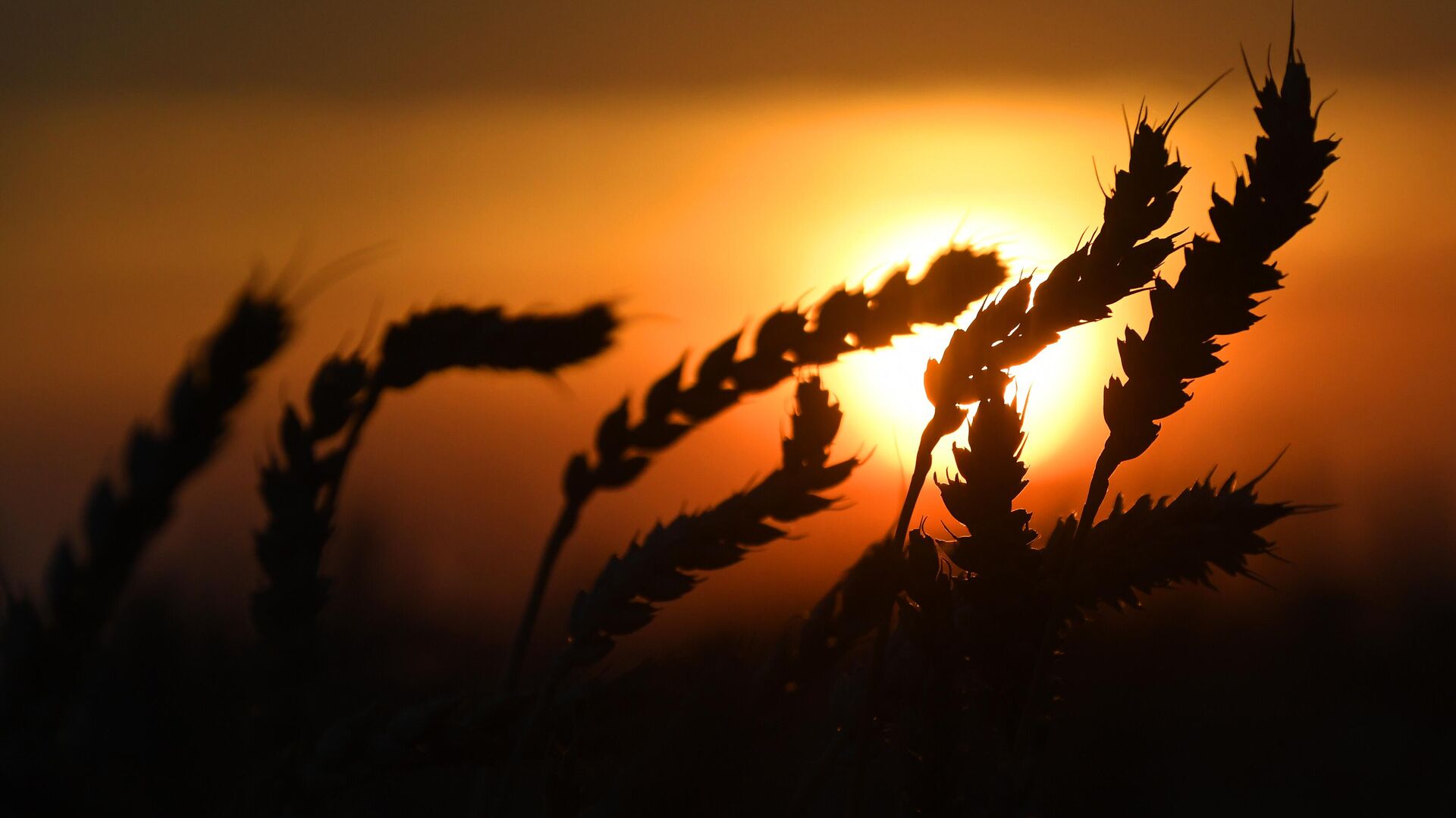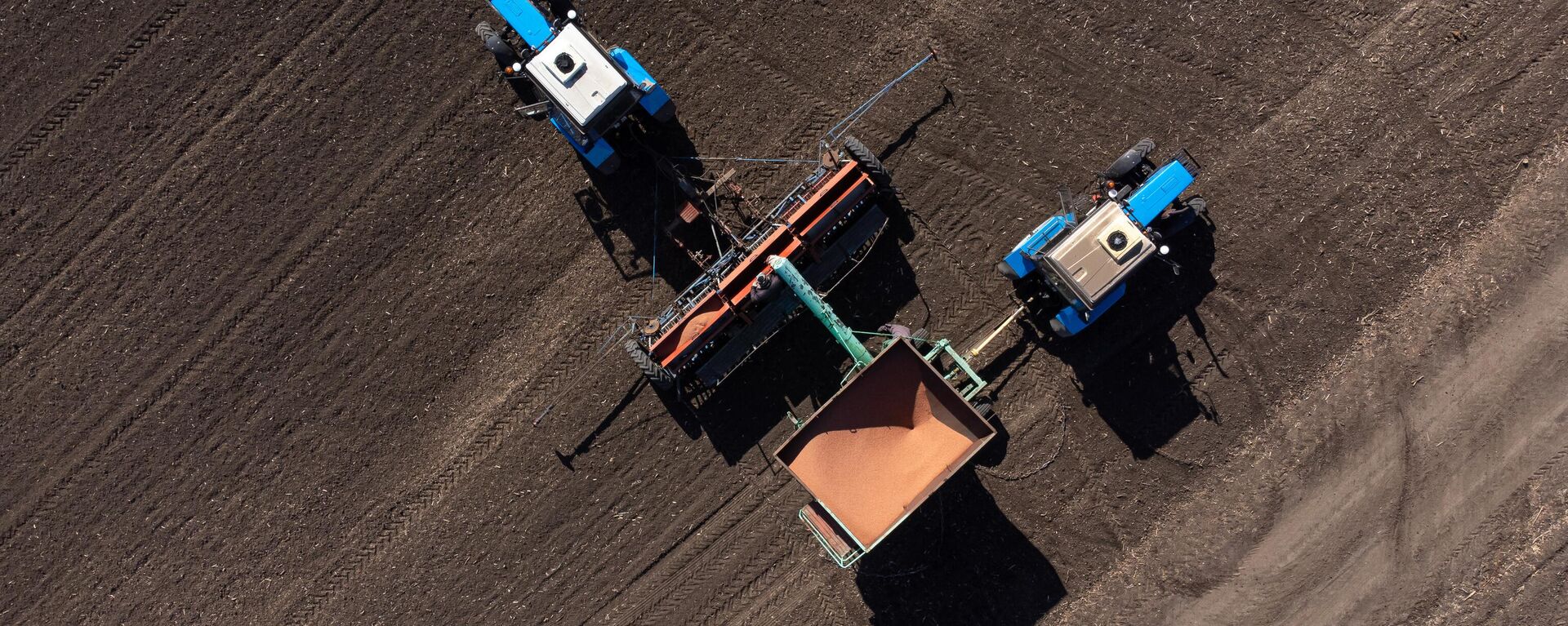https://en.sputniknews.africa/20240906/nigeria-enters-top-10-importers-of-russian-wheat-grain-exporters-union-says-1068170607.html
Nigeria Enters Top 10 Importers of Russian Wheat, Grain Exporters Union Says
Nigeria Enters Top 10 Importers of Russian Wheat, Grain Exporters Union Says
Sputnik Africa
In July, the Nigerian government announced a 150-day duty-free import period for essential food products. The list of duty-free items included corn, millets... 06.09.2024, Sputnik Africa
2024-09-06T13:15+0200
2024-09-06T13:15+0200
2024-09-06T13:32+0200
sub-saharan africa
nigeria
russia
export
import
trade
agriculture
southeast asia
eastern economic forum (eef)
european union (eu)
https://cdn1.img.sputniknews.africa/img/07e7/08/02/1060995682_0:70:3391:1977_1920x0_80_0_0_72db5a38255d1a3de3986868b40a1baf.jpg
After a long break, Nigeria resumed purchases of Russian wheat and, based on the interim results of the first two months of the agricultural season (July-August 2024), entered the top 10 of its buyers, the Grain Exporters Union reported on its Telegram channel.Purchases were resumed by private businesses, amounting to around 270,000 tonnes in two months. According to the union, the potential for Russian wheat exports to Nigeria is estimated at 2-3 million tonnes for the agricultural year (July 2024-June 2025).Eduard Zernin, Chairman of the Grain Exporters Union, told Russian media that wheat supplies to Nigeria ceased in May 2022, when the last shipment was made.Citing data from the World Hunger Monitor project (launched by the union in July 2022), which analyzes UN World Food Program data, Zernin reported that since the cessation of Russian grain supplies, food security in Nigeria has sharply deteriorated.According to Zernin, wheat is one of the most affordable food products.Meanwhile, Russian agricultural exports, cut off from Western markets, are growing in Asian and African countries against the backdrop of global agricultural imports increasing and prices declining, Russian Deputy Minister of Agriculture Sergey Levin said at the Eastern Economic Forum.Levin noted that Russian agro-exports are now almost entirely focused on markets in friendly countries from the post-Soviet space, Southeast Asia (SEA), and Africa.Moreover, the reorientation to Asian and African markets is part of a long-term strategy tied to the high potential of these markets, he added.The main tools supporting exporters include "post-export trade financing with the participation of one of the banks," as well as promoting products labeled "Made in Russia" with the help of the Russian Export Center, according to the deputy minister.By the end of 2023, Russian agro-exports increased by 17.2% compared to the previous year, reaching $43.5 billion. According to a decree by the Russian president, by 2030 this figure must increase by at least 1.5 times compared to 2021, to $55.65 billion.
https://en.sputniknews.africa/20240821/africa-emerges-as-key-market-for-russian-agriculture-president-of-grain-union-says--1067948032.html
nigeria
russia
southeast asia
west africa
united states (us)
europe
north america
Sputnik Africa
feedback@sputniknews.com
+74956456601
MIA „Rossiya Segodnya“
2024
Christina Glazkova
https://cdn1.img.sputniknews.africa/img/07e7/0b/07/1063380906_0:0:673:674_100x100_80_0_0_79628b4d0cd9f29291a57aa13bbf9e7a.jpg
Christina Glazkova
https://cdn1.img.sputniknews.africa/img/07e7/0b/07/1063380906_0:0:673:674_100x100_80_0_0_79628b4d0cd9f29291a57aa13bbf9e7a.jpg
News
en_EN
Sputnik Africa
feedback@sputniknews.com
+74956456601
MIA „Rossiya Segodnya“
Sputnik Africa
feedback@sputniknews.com
+74956456601
MIA „Rossiya Segodnya“
Christina Glazkova
https://cdn1.img.sputniknews.africa/img/07e7/0b/07/1063380906_0:0:673:674_100x100_80_0_0_79628b4d0cd9f29291a57aa13bbf9e7a.jpg
nigeria, russia, export, import, trade, agriculture, southeast asia, eastern economic forum (eef), european union (eu), economy, west africa, united states (us), europe, north america
nigeria, russia, export, import, trade, agriculture, southeast asia, eastern economic forum (eef), european union (eu), economy, west africa, united states (us), europe, north america
Nigeria Enters Top 10 Importers of Russian Wheat, Grain Exporters Union Says
13:15 06.09.2024 (Updated: 13:32 06.09.2024) Christina Glazkova
Writer / Editor
In July, the Nigerian government announced a 150-day duty-free import period for essential food products. The list of duty-free items included corn, millets, rice, wheat, sorghum, and beans.
After a long break,
Nigeria resumed purchases of Russian wheat and, based on the interim results of the first two months of the agricultural season (July-August 2024), entered the top 10 of its buyers, the Grain Exporters Union reported on its Telegram channel.
Purchases were resumed by private
businesses, amounting to around
270,000 tonnes in two months. According to the union, the potential for Russian wheat exports to Nigeria is estimated at
2-3 million tonnes for the agricultural year (July 2024-June 2025).
Eduard Zernin, Chairman of the Grain Exporters Union, told Russian media that wheat supplies to Nigeria ceased in May 2022, when the last shipment was made.
"Banks in the country almost immediately stopped payments for our deliveries, despite their humanitarian nature and exemption from sanctions. The issue of payments remains the key challenge for the development of Russian grain exports," he said.
Citing data from the World Hunger Monitor project (launched by the union in July 2022), which analyzes UN World Food Program data, Zernin reported that since the cessation of
Russian grain supplies, food security in Nigeria has sharply deteriorated.
"By 2023, the number of hungry people in the country almost doubled – from 58 million in January 2023 to a staggering 97 million in January 2024. Today, it is the only country in the world where over 100 million people face food shortages. To be precise, our latest monitoring showed 105 million hungry people," the chairman said.
According to Zernin, wheat is one of the most affordable food products.
"Russia has enough export potential to at least help Nigeria alleviate hunger pressure on its population, if not completely solve the problem," he said.
Meanwhile, Russian agricultural exports, cut off from Western markets, are growing in Asian and African countries against the backdrop of global agricultural imports increasing and prices declining, Russian Deputy Minister of Agriculture Sergey Levin said at the Eastern Economic Forum.
Levin noted that Russian agro-exports are now almost entirely focused on markets in friendly countries from the post-Soviet space, Southeast
Asia (SEA), and Africa.
"Our potential is nearing its peak. Today, we export over 90% of all our exports to friendly countries. The primary focus in our export strategy is on SEA and African nations," he said.
Moreover, the reorientation to Asian and African markets is part of a long-term strategy tied to the high potential of these markets, he added.
"The EU and US markets are practically closed to us due to sanctions and tariffs. However, we shifted to other markets not only because of sanctions but also due to new opportunities. For example, over the past 10 years, the global agricultural market has grown by approximately 40%. During this time, China has increased its purchases by 2.2 times and India by almost 85%. The growth of Russian exports is happening against the backdrop of a long-term cycle of significant food price declines," Levin said.
The main tools supporting exporters include "post-export trade financing with the participation of one of the banks," as well as promoting products labeled "Made in Russia" with the help of the Russian Export Center, according to the deputy minister.
By the end of 2023, Russian agro-exports increased by 17.2% compared to the previous year, reaching $43.5 billion. According to a decree by the Russian president, by 2030 this figure must increase by at least 1.5 times compared to 2021, to $55.65 billion.



